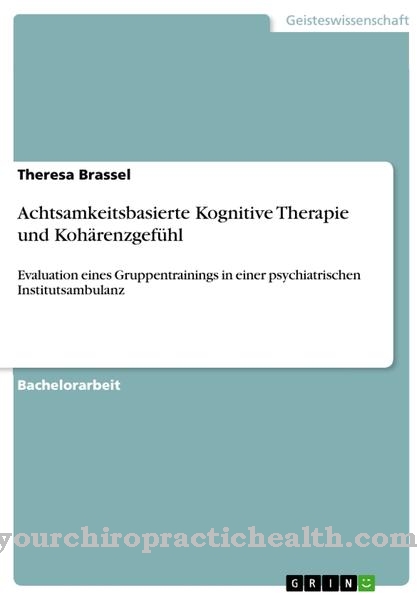In the Occupational therapy Everyday activities are used to expand and maintain people's ability to act. This affects people with physical or mental disabilities as well as those who have had a stroke or children who have been observed to have developmental delays.
What is occupational therapy?

This is where the Occupational therapy closely with other disciplines such as neurology, orthopedics and psychiatry.
In Germany, occupational therapy is a recognized form of therapy with uniformly regulated training. Dealing with everyday tasks such as simple household chores under therapeutic supervision should help the patient to achieve the greatest possible independence in daily life and to shed pathological behavior and movement patterns.
Occupational therapy also provides support for activities such as socializing with friends.
Function, effect & goals
The fields of application of the Occupational therapy are diverse. A large area of application is the rehabilitation of patients with neurological disorders such as stroke, Parkinson's disease or multiple sclerosis.
Occupational therapy can also be used to help patients whose neurological function is restricted after accidents.
Performing tasks that cause difficulties for the patient trains the nervous system and supports rehabilitation. In addition, patients learn to deal with everyday circumstances appropriately for their situation.
Gross and fine motor skills are trained in the context of occupational therapy as well as the sense of balance or memory.
Occupational therapy with children
In pediatrics, occupational therapy plays an important role in dealing with a large number of restrictions. In the case of developmental delays or behavioral disorders (eating disorders, restricted social behavior), occupational therapists are consulted as well as in the case of congenital organic damage. In this case, too, the aim is to enable the people affected to achieve maximum independence and to replace pathological ones with healthier movements and behavior.
In this context, doing homework is just as much part of the content of occupational therapy treatment as doing handicrafts or other child-friendly tasks, such as cooking. In this context, occupational therapists often cooperate with social institutions or special kindergartens, schools and rehabilitation centers for children.
Occupational Therapy & Orthopedics
In the case of orthopedic impairments, occupational therapy primarily affects the patient's motor functions. This learns how to deal competently with any aids that may be required in everyday life. Everyday exercises are used to try to optimize the range of motion of muscles and joints. This is where the field of occupational therapy and physiotherapy overlap. Both are often used in parallel to achieve the best possible effect. If necessary, the person affected learns, under therapeutic supervision, compensatory alternatives for movement sequences that have become impossible for him due to illness.
Even if coping with everyday tasks without unexpected external influences becomes more difficult, simply because of age, there is the possibility of improving the patient's quality of life through occupational therapy. Through targeted support, physical and mental abilities can be preserved and sometimes even improved. It is also important to adapt the home environment to the changed abilities of the patient in order to preserve the quality of life for as long as possible. In the geriatric area, occupational therapy focuses on promoting and maintaining cognitive abilities.
Occupational therapy is also suitable as an aid when it comes to training the resilience and motivation of people with mental disabilities. By coping with simple and more complex tasks, patients gain self-confidence and everyday competence. The socio-emotional competence and the processing of body awareness are practiced through everyday and creative tasks. In this way, under therapeutic supervision, patients learn to behave appropriately in a situation and to interact with their environment. In the psychiatric field, occupational therapy is mainly used for addicts and people with a wide variety of psychological disorders.
Depending on the field of activity, it is more or less successful in occupational therapy to act appropriately according to the holistic concept and to respond to the needs of the patient. Close consultation with the other disciplines involved is necessary in order to achieve optimal therapeutic results. German health insurances generally cover the costs of occupational therapy, because the approach of treating people as part of their environment often leads to promising results.












.jpg)



.jpg)










.jpg)
